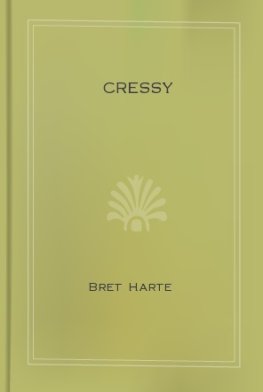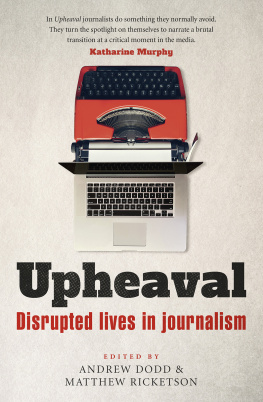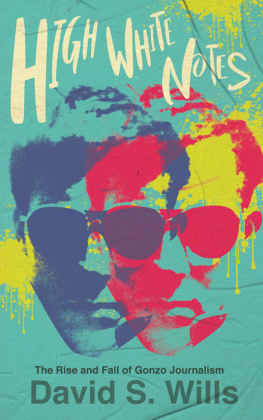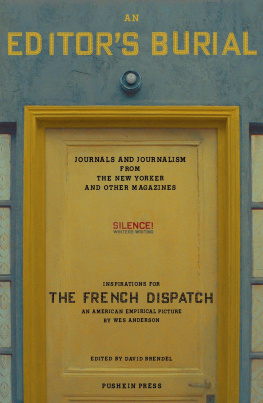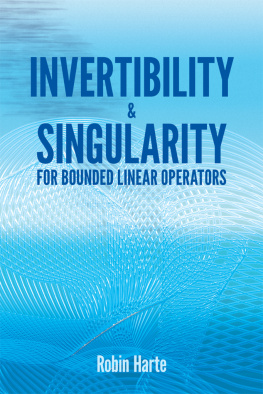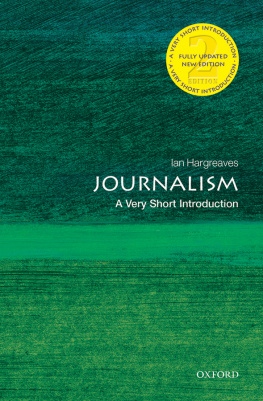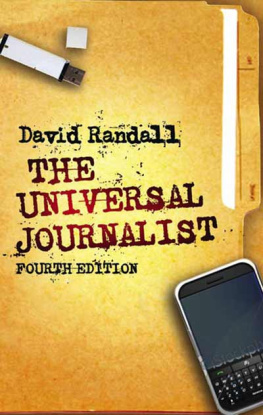
Hyperlocal Journalism
In the wake of the withdrawal of commercial journalism from local communities at the beginning of the 21st century, Hyperlocal Journalism critically explores the development of citizen-led community news operations.
The book draws together a wide range of original research by way of case studies, interviews, and industry and policy analysis to give a complete view of what is happening to communities as their local newspapers close or go into decline to be replaced by emerging forms of digital news provision. This study takes the United Kingdom as its focus, but its findings speak to common issues found in local media systems in other Western democracies. The authors investigate who is producing hyperlocal news and why, as well as production practices, models of community and participatory journalism and the economics of hyperlocal operations.
Looking holistically at hyperlocal news, Hyperlocal Journalism paints a vivid picture of citizens creating their own news services via social media and on free blogging platforms to hold power to account, to redress negative reputational geographies, and to tell everyday stories of community life. The book also raises key questions about the sustainability of such endeavours in the face of optimism from commentators and policy-makers.
David Harte is Associate Professor in Journalism and Media Studies at Birmingham City University, UK. Within the Birmingham School of Media he teaches on modules related to journalism studies, social media and alternative and community media. He supervises PhDs in the areas of journalism and community media. He has also published on the role of social media in media education and worked on creative economy initiatives within the West Midlands.
Rachel Howells is a journalist and media researcher. She has worked as a journalist for almost 20 years and was a founding director of the hyperlocal news co-operative Port Talbot Magnet and editor of its newspaper and website. Her research is focused on the decline of local newspaper journalism in Wales and the effects of this decline on both the production of news and local citizens. She sits on the National Union of Journalists Welsh Executive Council and on the advisory board of the Independent Community News Network (ICNN).
Andy Williams is Senior Lecturer in the School of Journalism, Media and Cultural Studies at Cardiff University, UK. He has a number of research interests which intersect journalism studies and cultural studies, including the practice and political economy of local journalism, and the relationship between news and public relations. He is a founder member of Cardiff Universitys Centre for Community Journalism.
Hyperlocal Journalism
The decline of local newspapers and the rise of online community news
David Harte, Rachel Howells and Andy Williams
First published 2019
by Routledge
2 Park Square, Milton Park, Abingdon, Oxon OX14 4RN
and by Routledge
711 Third Avenue, New York, NY 10017
Routledge is an imprint of the Taylor & Francis Group, an informa business
2019 David Harte, Rachel Howells and Andy Williams
The right of David Harte, Rachel Howells and Andy Williams to be identified as authors of this work has been asserted by them in accordance with sections 77 and 78 of the Copyright, Designs and Patents Act 1988.
All rights reserved. No part of this book may be reprinted or reproduced or utilised in any form or by any electronic, mechanical, or other means, now known or hereafter invented, including photocopying and recording, or in any information storage or retrieval system, without permission in writing from the publishers.
Trademark notice: Product or corporate names may be trademarks or registered trademarks, and are used only for identification and explanation without intent to infringe.
British Library Cataloguing in Publication Data
A catalogue record for this book is available from the British Library
Library of Congress Cataloging in Publication Data
A catalog record has been requested for this book
ISBN: 978-1-138-67453-0 (hbk)
ISBN: 978-1-138-67454-7 (pbk)
ISBN: 978-1-315-56124-0 (ebk)
The authors wish to thank the wide range of community activists, journalists, entrepreneurs, policymakers, consultants, investors and academics who either contributed to or helped shape the research within this book. Special thanks to Professor Ian Hargreaves, who led the research project out of which much of this research developed, and to Dr Jerome Turner, who carried out some of the research and co-authored several papers with us. We would like to thank the publishers for their patience with us.
This book brings together a wide range of research conducted in the UK that has focused on the emergence of hyperlocal journalism. The term hyperlocal isnt ours, but its increasing use in the late 2000s and early 2010s within commentary about the decline of the mainstream local press resulted in a desire to find out more about it. Not just what it is, but also why it had become so widely referenced and therefore what expectations might be being placed upon practitioners. Thus, a research project was proposed and work took place to investigate hyperlocal publishing in the UK between 2012 and 2015 as part of a larger project investigating creative citizenship, supported by the Arts and Humanities Research Council (AHRC) under its Connected Communities scheme (grant number AH/J005290/1). David Harte and Andy Williams were co-investigators on this project. In parallel, Rachel Howells was carrying out her own research, funded by the Knowledge Economy Skills Scholarship and the Media Standards Trust, into what happens when mainstream local media retreat from a local town (described in chapter 3). Howells has not only worked as a journalist but has also run a hyperlocal website and newspaper for Port Talbot in South Wales. Similarly, Harte has run a news website for Bournville in Birmingham. This allows for a significant degree of insight into the nature of this form of journalism and the issues inherent in practising it. Additional funding for the case study of B31 Voices, discussed in chapter 6, came via the Research Councils UK as part of the Digital Economy Communities and Culture Network+ project. An element of the research (a survey of hyperlocal practitioners) took place in partnership with Steve Barnett as part of his AHRC Research Fellowship project, Media Power & Plurality.
This book is partially derived from the following articles published in academic journals and books, which have been adapted, extended and amended for this volume. It also draws on theses by Harte and Howells.
Harte, David (2013) One every two minutes: Assessing the scale of hyperlocal publishing in the UK. JOMEC Journal [Online]. Available at: https://jomec.cardiffuniversitypress.org/articles/abstract/10.18573/j.2013.10240/
Harte, David (2016) Tell it like it is: The role of community not-for-profit media in regeneration and reputational change. Ethical Space: The International Journal of Communication Ethics, Vol. 13, No. 2, pp. 3547.




